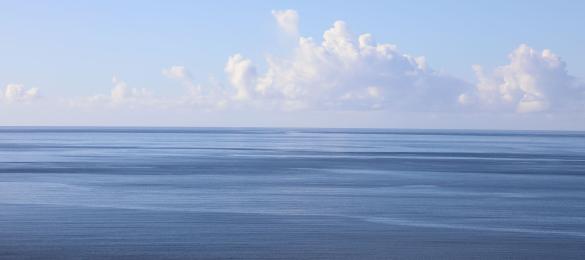Facilitating activities
to protect marine mammals
Training sea activity operators
Commercial whale watching has some economic benefits, but when badly carried out can seriously affect marine mammals. The activity is therefore supervised.
The decree issued by the delegate of the government for State action at sea (DDGAEM in French), regulating the approach of cetaceans in all French West Indian waters allows to grant specific authorisations for nautical events to professionals wishing to carry out this activity, and entering the precautionary area between 100 meters to 300 meters around cetaceans. These authorisations are issued to vessels by the directorate of the sea, based on applications submitted.
A demanding refresher training
Following the launch in 2016 of the training provided by the Agoa Sanctuary, a refresher training was organized in 2022 for the whale watchers already in operation in Guadeloupe, Martinique and Saint-Martin.
More demanding than the previous version, this refresher training took place during 3 days of theoretical training and half a day of exercises at sea. The aim was to improve the existing knowledge and to remind of the approach instructions, in order to help the professionals make their activity more sustainable while meeting the quality requirements expected by local and tourist customers.
Cetology, ethology, communication, regulations and examples of speeches where the subjects discussed during these sessions. A certification exam validated the training.
Discover the whale watching regulations

Regulation for the protection of cetaceans
Listen to Meï Li explaining how whale watching is regulated in order to limit its impact on cetaceans in the Caribbean.
Monitoring whale-watching activities
In order to ensure that the regulations are respected, it is necessary to monitor sea users, both professionals and leisure boaters.
Since 2020, the Agoa Sanctuary agents have been working on setting up inspections throughout the Sanctuary. These inspections, aimed at both professional users and leisure boaters, can be carried out at sea and also from identified viewpoints on land, particularly in Martinique.
These inspections are part of the "Regional Monitoring Plans for Marine Fisheries and the Marine Environment (PRCPMEM)" which are coordinated by the directorates of the sea of Guadeloupe and Martinique, and signed by the prefects.
The Sanctuary provides inspection training for agents control
Procedures and protocols were created in cooperation with the various inspection departments of the OFB and other State administrative bodies in the territories, then tested in the field. On the basis of these inspection protocols, the Sanctuary is involved in training the agents of the administrative bodies concerned by the PRCPMEM in how to approach cetaceans. Being able to recognise cetaceans, understanding their behaviour and being familiar with the various points to be respected in the Agoa charter are indeed essential points to be able to carry out inspections. The various inspection services at sea can then make use of their own human and logistical resources to independently carry out the inspections.
Offences may result in legal proceedings
The commissioned and sworn agents monitor compliance with regulations concerning the approach of marine mammals, in particular the rules governing the approach specified in the Agoa charter. They have the possibility to initiate legal proceedings. Offenders can be punished by law.
Advisory opinions
As experts and managers of a marine protected area, the Sanctuary team is regularly asked to give its opinion on projects that may affect marine mammals.
Generally, projects are submitted to the Division of State action at sea or to the DEAL, which then requests the Sanctuary's opinion.
These projects can be nautical events, research campaigns, the use of low altitude helicopters or underwater works (harbour dredging, laying of underwater cables...). These projects cause disturbances for the animals. The role of the Sanctuary is to verify that they respect the regulations concerning marine mammals in the waters of the French West Indies, to identify the potential threats and to propose specific measures in case of disturbance.
The opinions issued by the Agoa Sanctuary are consultative; they are therefore recommendations, and the department in charge of the files takes them into account without being obliged to comply with them. Depending on the content of the project, a Prefectural decree issued by the delegate of the government for State action at sea may then authorise the project.
Banner photo credit: Souffleur d'écume



